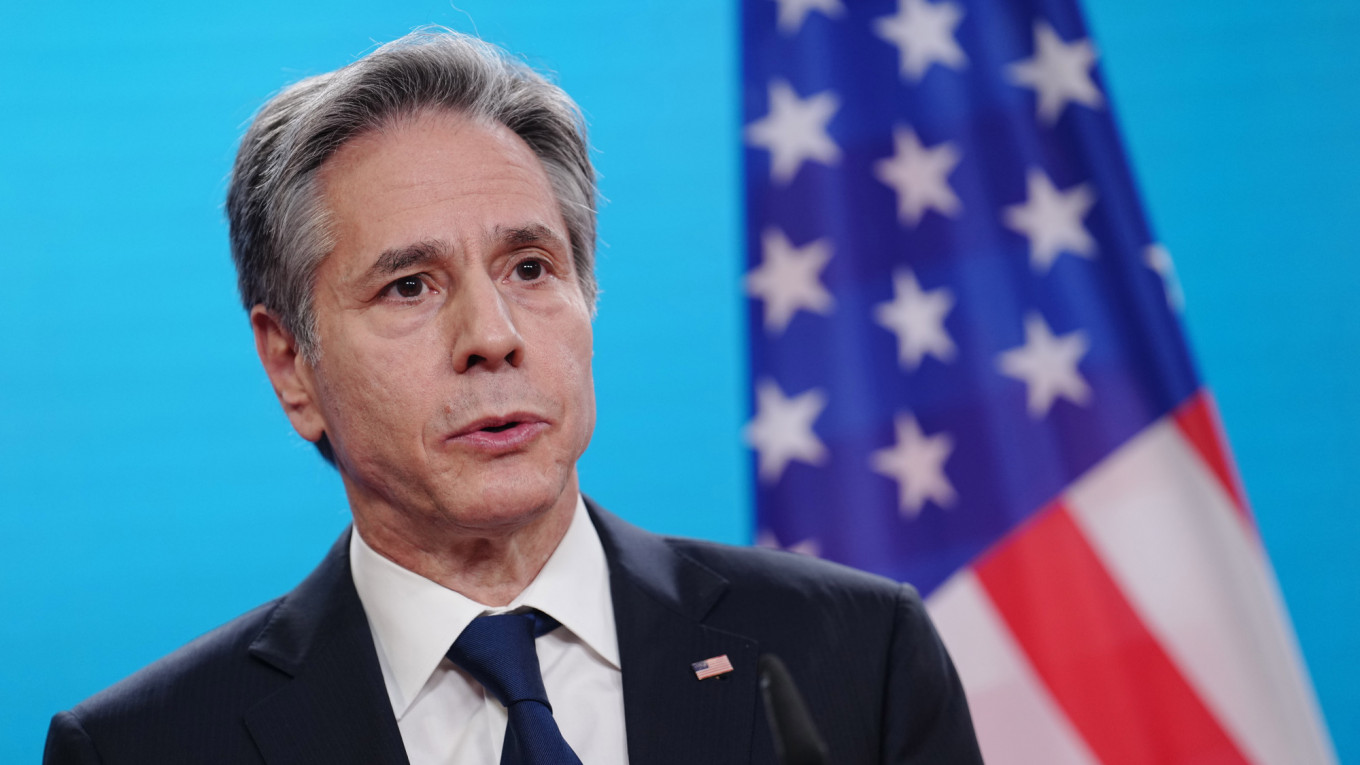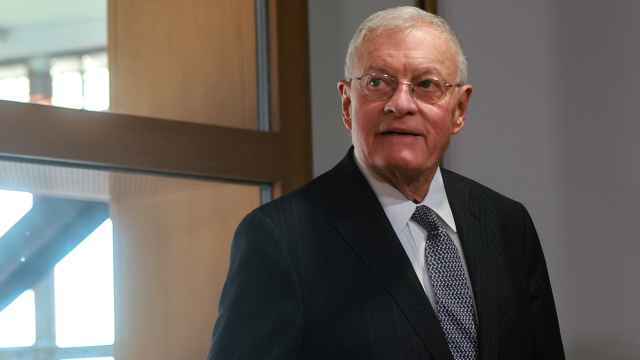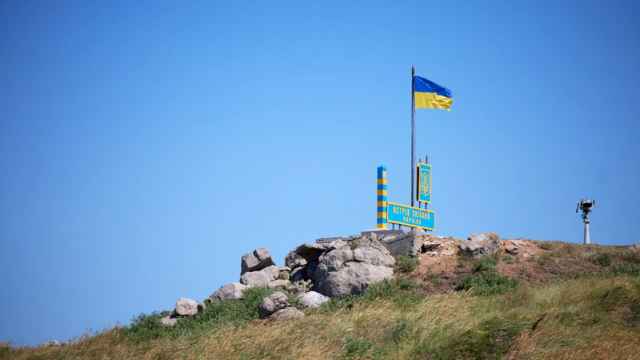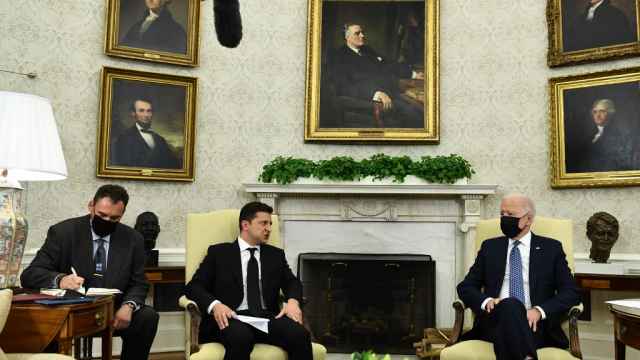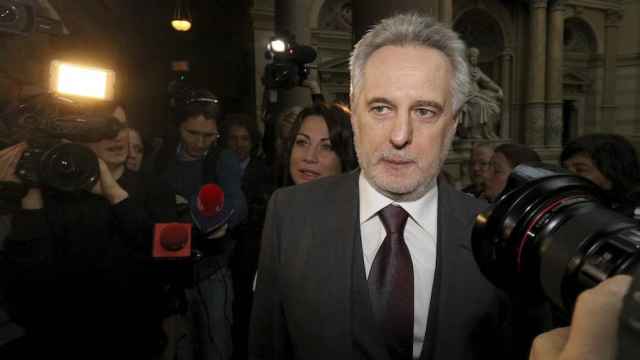The United States and its allies Thursday warned Moscow of grave consequences if "any" of the tens of thousands of troops massed on the border were to cross the border into Ukraine.
Following talks in Berlin with Germany, France, and Britain, U.S. Secretary of State Antony Blinken underlined that Russia "cannot match" Western powers' resoluteness.
Allowing Russia to violate Ukraine's territorial integrity would "drag us all back to a much more dangerous and unstable time, when this continent, and this city, were divided in two... with the threat of all-out war hanging over everyone's heads," he said in the German capital.
In a show of that unity, German Foreign Minister Annalena Baerbock, speaking alongside Blinken, said the West would not shy away from taking action even if that included measures that "could have economic consequences for ourselves."
Fears are mounting that a major conflict could break out in Europe, and British Prime Minister Boris Johnson cautioned that Russia marching on Ukraine would have repercussions beyond the continent. "It would be a disaster for the world," he said.
In a bid to defuse the worst tensions between Russia and the West in decades, Blinken is on a whirlwind diplomatic tour that took him to Berlin on Thursday before his meeting with Russia's Sergei Lavrov in Geneva on Friday.
Moscow insists it has no plans to invade but has at the same time laid down a series of demands – including a ban on Ukraine joining NATO – in exchange for de-escalation.
Washington has rejected Moscow's demands as "non-starters" and NATO chief Jens Stoltenberg this week insisted that the alliance "will not compromise on core principles such as the right for each nation to choose its own path."
Upping the ante, Russia announced new naval drills that will see it deploy to the Atlantic, Pacific, Arctic and Mediterranean "more than 140 warships and support vessels, more than 60 aircraft, 1,000 pieces of military equipment, and about 10,000 servicemen".
The announcement followed an angry condemnation from the Kremlin of what it described as "destabilizing" remarks from U.S. President Joe Biden after the American leader vowed a "severe" response to any invasion of Ukraine.
Russia already held joint military drills Wednesday with forces of ex-Soviet republic Belarus, which also neighbours Ukraine.
A U.S. official said the exercises could presage a permanent Russian military presence involving both conventional and nuclear forces in Belarus.
High price
The West has repeatedly warned Russia it would pay a "high price" of economic and political sanctions should it invade Ukraine.
Hours before Blinken arrived in Berlin to coordinate the possible response to Russia, Biden sparked controversy as he appeared to indicate that a "minor incursion" might prompt a smaller reaction from NATO allies.
"It's one thing if it's a minor incursion, and then we end up having a fight about what to do and not do, et cetera," he said.
Blinken in Berlin clarified the comments, saying that "if any Russian military forces move across the Ukrainian border and commit new acts of aggression against Ukraine, that will be met with a swift, severe response from the United States and our allies and partners."
Biden also later took pains to calm frazzled nerves, saying that any entry of Russian troops into Ukraine will be treated by the West as "an invasion".
But smarting from Biden's Wednesday remark, Ukrainian President Volodymyr Zelensky hit back that there was no such thing as "minor incursions".
"We want to remind the great powers that there are no minor incursions and small nations. Just as there are no minor casualties and little grief from the loss of loved ones," Zelensky wrote on Twitter.
Dialogue preferred
The West's diplomatic machine has been running on full power over recent weeks to defuse tensions, but with positions entrenched on both sides, a series of talks between Western and Russian officials in Geneva, Brussels and Vienna has failed to yield any breakthrough.
NATO allies have signaled their willingness to keep talking but Moscow has demanded a written response on its proposals for security guarantees.
On the Russian wish list are measures that would limit military activities in the former Warsaw Pact and ex-Soviet countries that joined NATO after the Cold War.
But in Kyiv on Wednesday, Blinken said he would not present such a formal response at Friday's talks with Lavrov in Geneva. Rather it was on Russia to dispel fears of any expansionist intentions.
Ukraine has been fighting Moscow-backed forces in two breakaway eastern regions since 2014 when Russia annexed the Crimean peninsula from Ukraine.
More than 13,000 people have been killed, and the latest Russian troop build-up has also greatly rattled neighbors in the Baltics.
Washington said Thursday it has approved requests from the Baltic nations to ship U.S.-made weapons to Ukraine.
Britain has also said it would send defensive weapons to Ukraine as part of a package to help the country secure its borders.
A Message from The Moscow Times:
Dear readers,
We are facing unprecedented challenges. Russia's Prosecutor General's Office has designated The Moscow Times as an "undesirable" organization, criminalizing our work and putting our staff at risk of prosecution. This follows our earlier unjust labeling as a "foreign agent."
These actions are direct attempts to silence independent journalism in Russia. The authorities claim our work "discredits the decisions of the Russian leadership." We see things differently: we strive to provide accurate, unbiased reporting on Russia.
We, the journalists of The Moscow Times, refuse to be silenced. But to continue our work, we need your help.
Your support, no matter how small, makes a world of difference. If you can, please support us monthly starting from just $2. It's quick to set up, and every contribution makes a significant impact.
By supporting The Moscow Times, you're defending open, independent journalism in the face of repression. Thank you for standing with us.
Remind me later.


